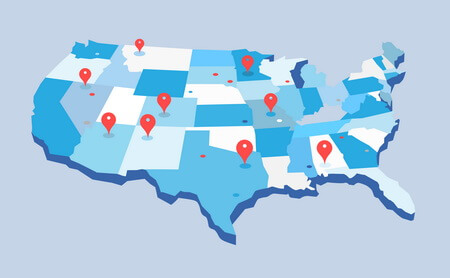Plan Administration
At the most basic level, self-directed IRA and Solo 401(k) plans are no different than any other comparable retirement plan. All plan components such as contribution limits, distribution processes, designation of beneficiaries are the same.
When you operate a self-directed retirement plan, you may have a more hands-on view of some of these plan events.
In this series of articles, we cover some of the basic concepts surrounding plan administrative actions and how they apply to your self-directed plan.
When you operate a self-directed Solo 401(k) plan, being mindful of the beneficiaries who will inherit your plan is important. Choosing who to name as beneficiaries for your plan and how to make your designations can be simple or complex,…
As tax season rolls around each year, we typically get a lot of questions about tax filing requirements and where to find a CPA who can help. The simple answer is that most self-directed IRA and Solo 401(k) investors will…
Ringing in the new year inspires us to set goals to improve ourselves. While you may not be able to stick to that new diet past the end of January, you can and should be able to take steps to…
Starting at age 72, you may be required to take a minimum distribution from your real estate IRA or Solo 401(k) each year. This concept is referred to as Required Minimum Distributions (RMDs). If your self-directed retirement plan is invested…
The Solo 401(k) is a fantastic retirement plan for self-employed entrepreneurs. Because a Solo 401(k) is designed for an owner-only business, it provides the savings power of a 401(k) in a simple to operate format. With high contribution limits, the…
When it comes to IRA inheritance and beneficiary designations, a self-directed IRA is treated the same as any other IRA. Choosing who to name as beneficiaries for your IRA and how to make your designations can be simple or complex,…
A Solo 401(k) is more than the name might imply. While these plans have been marketed as Solo plans or Individual plans, the more apt description is “owner-only”. What makes the Solo 401(k) special is the simplicity of administration and…
The Checkbook IRA program commonly uses an IRA-owned LLC entity to provide you as the investor with direct control. An LLC is a state-registered business entity and has certain administrative requirements as a result. One of those requirements is to…
IRS rules require annual reporting for IRA accounts that include the fair market valuation of the IRA’s holdings. In a conventional IRA invested in stocks, bonds, and mutual funds, the IRA account custodian can simply look up the publicly available…
IRS rules stipulate that certain investors are required to take distributions from IRA and 401(k) plans. The mandatory withdrawals are referred to as Required Minimum Distributions (RMDs). The SECURE Act of December 2019 and the CARES Act of March 2020…










